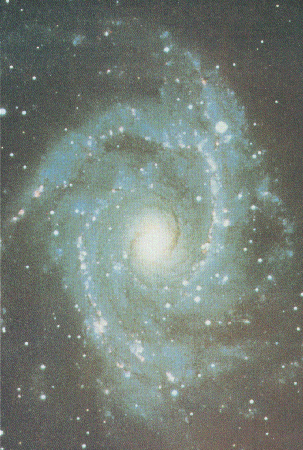|
|
|
|
| Last Update: 5th July 2000 | |||||||
| About MERLIN |
Astronomy is founded on a desire to know about the universe. Ever since humans first looked up at the stars, civilised societies have sought to learn about the cosmos and mankind's place within it. But only in the last four centuries has science provided the means to fulfil that curiosity and answer our questions about the universe.  The emission nebula Messier 16 (Brian Hadley, copyright Royal Observatory, Edinburgh) In the past 50 years, especially, astronomy has flowered as never before. new technology has led to the progressive opening up of the entire electromagnetic spectrum from gamma rays to radio waves. No longer confined to the narrow window of visible light, astronomers today find themselves in possession of a more complete and more wonderful picture of the universe than ever before.  The Rho Ophiuchi complex of gas and dust clouds (David Malin, copyright Royal Observatory, Edinburgh and Anglo-Australian Telescope Board) As well as its direct value to basic science (astrophysics deals with extremes of physical conditions that cannot be studied in the laboratory) astronomical research is a stimulus to technological innovation. Astronomers have contributed greatly to the development of radio technology,optical design,image processing software, and sensitive detectors for use throughout the electromagnetic spectrum.  NGC 2997 - a spiral galaxy similar to our own (David Malin, copyright Anglo-Australian Telescope Board) A less obvious side-benefit of astronomy is the production of skilled researchers and technicians who take up careers in other fields of science and in industry and commerce. A training in astronomy is an excellent grounding in problem-solving in all spheres of human activity. On a strategic level, astronomy forms part of the wide spectrum of basic scientific know-how that a modern technological nation needs to adapt and thrive in a rapidly changing world. These are some of the benefits of astronomical research but they are not the motivation. Curiosity always comes first,and it was curiosity that led Bernard Lovell to bring his army-surplus trailers to a Cheshire field in the winter of 1945. NextPrevious Contents | ||||||
| Newsletter | |||||||
| Highlights | |||||||
| VLBI@JBO | |||||||
| Proposals | |||||||
| Time Awards | |||||||
| Schedules | |||||||
| User Guide | |||||||
Archive
|
Contact |
Email |
|
| ||||